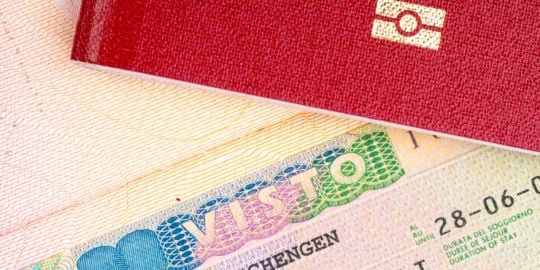Childcare and family activities in Italy

If you have decided to relocate your family to Italy, you probably already recognise the huge emphasis that the country places on family, and perhaps it even played a part in you deciding to move there.
Italians frequently socialise with members of their extended families, enjoy meals together, and go on holiday together. Whilst Italian families are much smaller (even in the rural South) today, quality 'family time' is still crucial.
Childcare in Italy
It is standard for both parents to go to work, and for children to attend nurseries and preschools or stay with other relatives. In Italy, it is particularly common to see grandparents taking responsibility for their grandchildren during the weekdays. However, if it is not possible for a member of the family to take care of them, there are a number of alternatives.
If you plan to work in Italy, you may wish to send your children to one of the following:
- Nursery (Asilo)
- Preschool (Scuola Materna ou Scuola dell'Infanzia)
- Individual caregiver e.g. nannies
Good to know:
Education is available to all children living in Italy, regardless of nationality.
Nurseries in Italy
Asilo (nurseries) in Italy will usually accept children from as young as three months old. These establishments exist primarily as a facility for working parents who are unable to look after their children during the day. Cost varies, depending on the location, length of service required, and the type of service. For example, facilities run by the local council are generally lower in price, though places at these nurseries are in huge demand. Public nurseries cost less than private nurseries, but these are not regulated at a national level, so you will find that the service differs from region to region. These are typically open from 8.30 am to 12.30 pm, but parents may have the option to leave children past those hours.
Preschool in Italy
Scuola Materna (preschool) will accept children aged between three and six years old. Most children in Italy attend a pre-school, but it is not compulsory. They typically operate between the hours of 8 am and 5 pm. These are regulated by the Ministry of Public Education, but there is no national curriculum.
There are two different types of pre-school: state-run preschools (which are free) and state-subsidised private preschools (communal, religious, and private). Whilst state-run scuola materna are free, a small contribution is often requested for transport and meals. You may also need to pay for extra-curricular activities where specialist teachers are required, for subjects such as sport and music. Private pre-schools range in cost, from â¬100-500 per month.
Scuola Materna generally has holiday periods so if you have a child, you will need to find alternative provisions during these periods.
Good to know:
Preschool places are often limited, so you should apply well in advance.
Curriculum at scuola materna
Whilst preschools are regulated by the Ministry of Public Education, the emphasis is on learning through play. An emphasis is placed on body and movement, messages, speech, and words and space. Music, dance, and arts and crafts will also play a formative role in the nursery curriculum. Children will receive a final report before transferring to primary school.
Good to know:
Children in Italy do not usually learn the rudiments of reading and writing until they begin primary school (Scuola Elementare) at the age of six.
Useful link:









